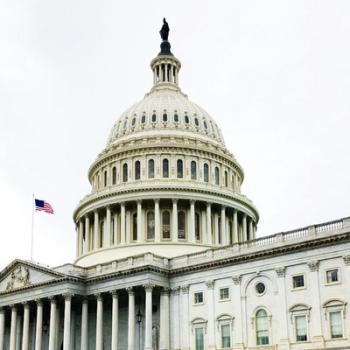The film's links to "Peter Pan" are striking. It wrestles with many of the same themes of maturity and responsibility, only this time from the perspective of the parents rather than that of the children. Deep down, Robert and Alice are more fearful of their own "growing up" than they are of their children's burgeoning adolescence. She wants to be "bosom friends" with her daughter rather than her mother, and he wants to be a husband without having to be a father. Both are afraid to embrace the joys and sorrows, the rewards and responsibilities that go along with parenthood—a fear best exemplified by their absence as the film begins, and one whose defeat is most clearly signaled by Alice's gentle reminder that her willingness to "settle down" is not something she has chosen for her husband's sake. Finally, they are ready to think of the children, which means they're ready to start acting like parents.
Despite the obvious growth of its subjects, the moral of the story remains a bittersweet one. The indefensible absence of the doctor and his wife from their children's lives and the struggles they faced to overcome the consequences of that absence is a sadness that will linger beyond their newfound togetherness. Precious moments in the lives of their young ones have been lost forever; those are moments Robert and Alice will never get back, no matter how earnestly, how desperately they try. They have set out to make up for lost time, but there is no "making up." Their unwillingness to be present for their children, temporary though it may have been, is something they will always regret.
There are many reasons for a parent's absence, some as selfless as the Greys' were selfish. The monetary demands of a family often trump the desires of its individual members, and many a father or mother find themselves forced to work long, debilitating hours to provide food and shelter for their loved ones. In these cases, a parent's absence is motivated fiercely and deeply by love, as is the attentive presence of a parent in happier circumstances. They are laying aside their own wishes and needs for the sake of those they love the most. That is true (and often-unrecognized) heroism.
But for myself, blessed with both a wonderful spouse and a steady job, there is no excuse for absence, or for the emotional distance that accompanies it. No excuse, that is, except the one offered by Robert and Alice in Darling's opening moments: fear.
Frankly, I'm afraid. All too often, I find myself looking at my children and wondering when an adult will appear—an adult equipped with the prudence and experience my boys need, and which I so clearly lack. In those panicked moments, the fear can be overwhelming; the desire to withdraw into the safety of one's self is an easy solution to the exhaustive obligation of parenting. That instinctive shrinking from responsibility, understandable though it may be, ignores both the good we parents do without realizing it and the grace God gives to us as parents. We have been given to power to serve as the most immediate, most formative forces for good in the lives of our children. But we can't be that force without simply being there in the first place.
It's alright to be afraid. In fact, it may even be healthy. But we can't let it be paralyzing. There is too much at stake for that.





